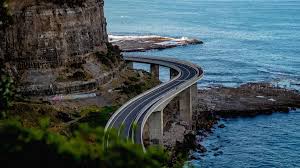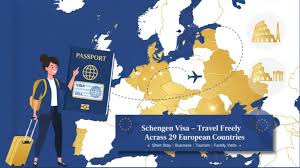
Traveling
Travelling is the act of moving from one place to another, whether within one’s own country or across international borders. People travel for various reasons, including leisure, work, education, or personal growth. It allows individuals to break away from daily routines and immerse themselves in new experiences. Beyond being a simple movement from one place to another, travelling offers the opportunity to explore diverse cultures, meet new people, and develop a broader perspective on life.
Throughout history, humans have always been explorers. From ancient trade routes to modern tourism, the desire to discover new places has been a fundamental aspect of civilization. Whether it is a short weekend getaway or a long-term journey, travelling provides countless benefits beyond relaxation. It fosters curiosity, strengthens adaptability, and offers a deeper understanding of the world.
One of the most unforgettable travel experiences I had was visiting Bali, Indonesia. The moment I arrived, I was mesmerized by the island’s breathtaking scenery—lush green rice fields, crystal-clear beaches, and magnificent temples. What made the journey even more memorable was the warmth and hospitality of the Balinese people.
During my stay, I explored traditional markets where artisans sold handmade crafts, from intricately carved wooden statues to beautifully woven textiles. I also had the chance to try local cuisine, such as nasi goreng (fried rice), babi guling (roast pig), and fresh tropical fruits. One of the highlights of my trip was participating in a Balinese dance workshop, where I learned about the significance of movement and expression in their culture.
This journey not only provided me with beautiful memories but also taught me valuable lessons. I learned the importance of resilience from the locals, who continue to preserve their traditions despite modernization. Moreover, it deepened my appreciation for different cultures and ways of life, reminding me that every place has its own unique beauty and story to tell.
To make the most out of a journey, proper planning is essential. A well-organized trip ensures that travelers can enjoy their experience without unnecessary stress or inconvenience. The first step is to choose a destination that aligns with one’s interests, whether it is a bustling city, a tranquil beach, or a historical site. Researching the best time to visit, must-see attractions, local customs, and safety tips is also crucial.
After that, booking transportation and accommodation in advance helps avoid last-minute problems and ensures a smoother trip. Packing smart is another key aspect, as bringing essential items based on the destination’s climate and planned activities can prevent unnecessary hassles. Finally, while having an itinerary is important, staying flexible allows travelers to embrace unexpected experiences that often lead to the best memories.
One of the greatest rewards of travelling is witnessing the beauty of nature and diverse cultures. Every place in the world has something unique to offer, from stunning landscapes to rich traditions. The Maldives, for example, is known for its pristine beaches, crystal-clear waters, and luxurious overwater bungalows, while Switzerland’s breathtaking Alps provide the perfect setting for skiing and hiking. For those who love adventure, exploring the Amazon rainforest offers an incredible opportunity to see exotic wildlife and lush biodiversity.
Cultural diversity is another fascinating aspect of travelling. Each country has its own customs, traditions, and history that shape its identity. Japan, for instance, is famous for its cherry blossom festivals in spring, which create a magical pink landscape, while Egypt’s ancient pyramids tell the story of civilization that has stood the test of time. By experiencing different cultures, travelers gain insight into how people live, celebrate, and preserve their heritage.
People have different preferences when it comes to travelling. Some prefer to explore the world alone, while others enjoy the company of friends or family. Solo travelers appreciate the freedom of making their own decisions, setting their own schedules, and immersing themselves in self-reflection. This type of travel fosters independence and self-reliance, as travelers learn to navigate new places on their own. However, solo travel can sometimes be lonely and more expensive since costs are not shared.
On the other hand, group travel offers companionship and shared experiences. Whether with family, friends, or tour groups, travelling together can be fun and cost-effective. It provides a sense of security and support, but it may also require compromise, as different people may have different preferences. Both styles have their advantages, and the choice depends on personal preferences and travel goals.
Travelling can be compared to reading a book—each destination is a new chapter filled with adventure, knowledge, and inspiration. Just as books introduce us to new ideas and perspectives, travelling opens our minds to different ways of life. Each journey, like a well-written novel, leaves an imprint on our souls, shaping the way we see the world. People travel for various reasons, such as curiosity, relaxation, or self-discovery, and the effects of travelling are profound and long-lasting.
It broadens one’s worldview by challenging stereotypes and misconceptions, making people more open-minded and accepting. It also reduces stress, as taking a break from routine life and exploring new environments can improve mental health and overall well-being. Additionally, travelling enhances problem-solving skills, as navigating through unfamiliar places strengthens one’s ability to adapt and think critically. These positive effects show why travelling is not just a leisure activity but a valuable life experience.
There are different types of travelers, each with unique motivations. Adventure travelers seek thrill and excitement, engaging in activities like hiking, scuba diving, and extreme sports. Cultural travelers are interested in history, museums, and local traditions, seeking to understand different ways of life. Luxury travelers prefer high-end resorts, exclusive experiences, and premium services. Meanwhile, backpackers travel on a budget, exploring places with minimal expenses while focusing on authentic experiences. Understanding these categories helps individuals choose travel styles that best suit their interests and expectations.
Travelling is more than just visiting new places; it is about understanding different cultures, meeting new people, and stepping out of one’s comfort zone. It helps individuals develop adaptability, patience, and a deeper appreciation for the world. Instead of being just an escape from routine, travelling is a tool for personal and intellectual growth. However, to ensure a smooth journey, every traveler should prepare essential items. These include a passport and necessary travel documents, a well-researched itinerary, appropriate clothing for the destination’s climate, emergency contacts and travel insurance, and a camera or journal to document memories. Being well-prepared allows travelers to enjoy their trips without unnecessary stress.
Travelling is an enriching experience that shapes one’s understanding of the world. It provides opportunities for adventure, learning, and self-growth. Whether travelling near or far, alone or in a group, every journey contributes to personal development. The world is vast, and there is always something new to explore—so why not start the next adventure today?
By: INDIANA NURUL AZIZAH
Write and Win: Participate in Creative writing Contest & International Essay Contest and win fabulous prizes.


